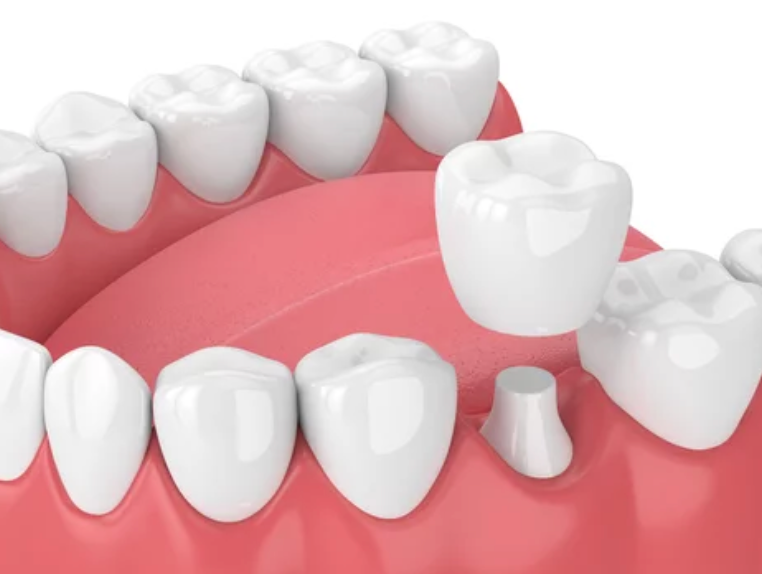A dental crown is a protective cap that your dentist may put over your tooth. They play a crucial role in preserving and restoring the look and function of your teeth. If you have severe damage or decay, your dentist will need to repair the structure of your tooth. As a result, they will use a dental crown.
With the help of a lab, your dentist will create a custom crown to fit perfectly over your tooth. It will resemble the natural shape and function of your tooth. While blending perfectly with your smile, a crown will protect weakened teeth from breakage or decay. Crowns serve many purposes, both restorative and cosmetic.

Extensive Tooth Decay
When a tooth has significant decay, your dentist must remove the decay to prevent the spread of bacteria. If a dental filling isn’t enough to restore your tooth, your dentist may use a dental crown. Depending on the amount of decay, your tooth will likely be fragile. Your dentist will use a crown to reinforce the structure of your tooth. This will also shield it from further damage.
You may hear your dentist talk about a dental crown if you need a root canal. A root canal is a procedure that removes the infection from your tooth. When you have a cavity, it can progress to a major infection without treatment. Then, your dentist will need to remove the infected pulp. This can remove a large portion of your tooth, making it fragile. Therefore, your dentist will use a dental crown to prevent fractures. The crown will also prevent bacteria from re-entering your tooth.
Fractured or Broken Teeth
If you experience trauma or impact to the face, it can cause damage to your teeth. For example, your teeth can suffer fractures or breaks due to accidents or injuries. A fracture is a break in the enamel. Any time there is a break or weak spot in the enamel, your tooth is susceptible to damage. Bacteria can enter the tooth, causing decay.
Another issue is that a fractured or broken tooth can cause significant pain and discomfort. This is because the nerves in your tooth are more exposed to outside forces. Pressure and temperature can become extreme sensations if you have a broken tooth. Additionally, a crack in your tooth can worsen the longer you go without treatment.
Your dentist can use a dental crown to restore the function of your tooth. This will allow you to bite and chew without pain or discomfort. Also, a crown will prevent a cracked tooth from worsening or causing more damage. In fact, a crown can ensure the longevity of a cracked tooth by preventing fractures.
Cosmetic Uses
While dental crowns are popular for restorative treatments, your dentist may also use them for cosmetic reasons. A dental crown can completely change the look of your teeth and smile. For example, some people have tooth discoloration that can’t be altered with chemical whitening. One solution is to cover the stains with a dental crown.
Another instance is for patients with misshapen teeth. Either through genetics or dental trauma, teeth can look misshapen or too small. Unfortunately, this can make your smile disproportionate. However, a dental crown can seamlessly blend with your smile. Therefore, your teeth will look natural and similar.
